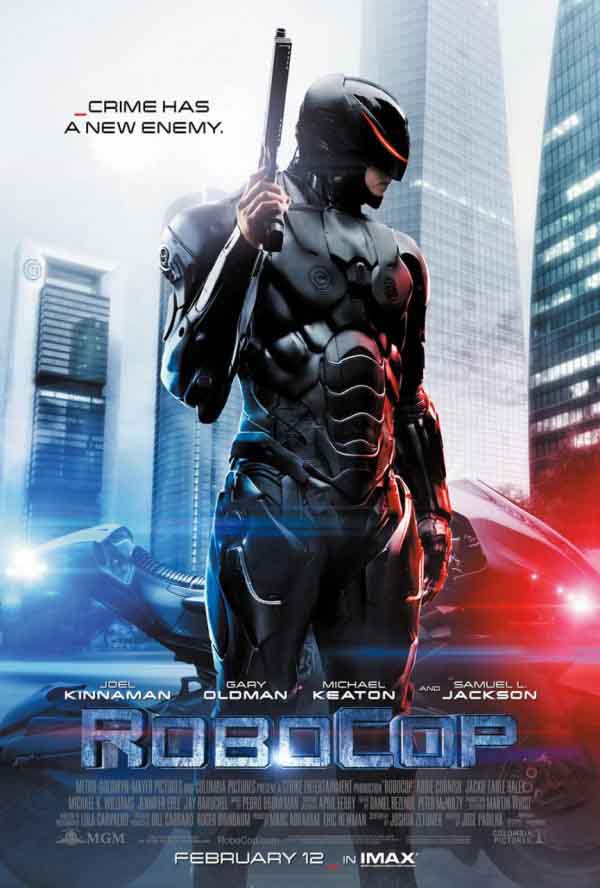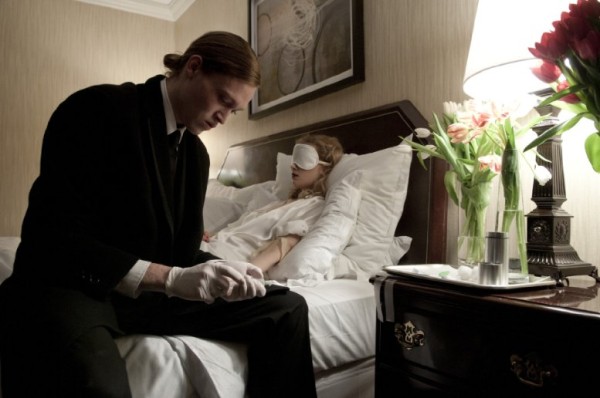Certain movies or albums clearly reveal the presence of bad management. Either leadership by committee, which isn’t leadership so much as compromise that satisfies no one, or a bad manager who spends too much time worried about surveys, business objectives and the like to place his focus on whether or not the product is good. Such is the case with Robocop 2014 version, a movie so stunningly bad that with its obviously huge budget it can only be the result of thorough mis-management and execrably poor judgment.
Following up on a winning franchise is never easy because viewers have high expectations, but one thing is clear: the new movie must be at least within the ballpark of the old, or it will be interpreted as having the same failure as most sequels which is too many cooks in the kitchen, too many fingers in the pot, etc. The 2014 version comes nowhere close to the 1987 original on any level and even where it attempts to pay homage to the original, completely misses the point. This occurs because management decided the 2014 version must fit within the parameters for television shows, namely that each scene must have one unambiguous point and one only. Remember, that which communicates clearly wins out over the truthful when you’re dealing with the masses, and so these filmmakers decided to sacrifice not just nuance so that every idiot in the room could understand it, but also depth. The result paint-by-numbers script is as excruciating as a Creative Writing final exam, moving from point to point with absurd over-emphasis on the basics so that even if you are brick-stupid, obese, lazy, drunk and distracted, you will still understand what is going on. Which, as it turns out, is not a whole hell of a lot.
Instead of taking the intelligent course of action and creating a sequel set in 2014, the filmmakers decided to re-tell the Robocop backstory but with new actors and new settings. This becomes troublesome because they insist on dumbing this down and, as if pitching this movie to millennial women, centering the plot on the surface emotion of a generic character in its setting, rather than letting the emotion arise from this character’s struggle to understand his circumstances. Everything is surface level, cut from whole cloth in broad colors with boundaries double-underlined in thick market like an idiot kindergarten teacher might do, and the result is that the characters become caricatures. The expressive Jennifer Ehle (Pride and Prejudice) is utterly wasted in her role, and the excellent Michael Keaton and Gary Oldman are expended without purpose in theirs. Keaton portrays a CEO who dutifuly turns evil as the gimpy plot requires, instead of focusing on the fascinating side of his character which seems an amalgam of Dot-Com CEOs in his pursuit of technology and wealth with the zealous belief that nothing but good can come from progress. Oldman also experiences a character deformation as he goes from a good guy scientist to a self-interested quasi-villain to a hastily rehabilitated hero. Even Samuel L. Jackson becomes neutered as he must contort his acting to fit within the manipulated plotline. The filmmakers seem narcissistic in the worship of their own cleverness, forgetting that “writing in” details does not obscure the form of the plot itself, which shakes off their little footnotes and rampages straight into paradox.
The above are terrible sins against the artisanal craft (heh) of filmmaking. But the worst sin of all is that they removed the fun and terror from Robocop. In the original, audiences were shocked by the situation, the horror of people themselves and the self-serving decisions they made, and the clash between man and machine. The whole movie might be described as man emerging from within the machine to triumph over it. The new movie removes the tension. Combat scenes are outright boring, with Robocop playing the role of either omnipotent effortless victor or duty-bound moral martyr, but the tension of tight situations and intelligent responses to them dies in a video game simulation that looks about as boring as most first person shooters are after the week they get introduced. Even more, fight scenes are over quickly with little resolved. The movie just moves on like a checklist between points the filmmakers wanted to establish, with utterly zero dimension to the characters. It is probably difficult to botch a story with this much promise, but the director and his staff on this one did so with ease, which is about the only effortless and unforced thing about this movie. Avoid!
9 CommentsTags: botch, horror film, robocop, sci-fi



